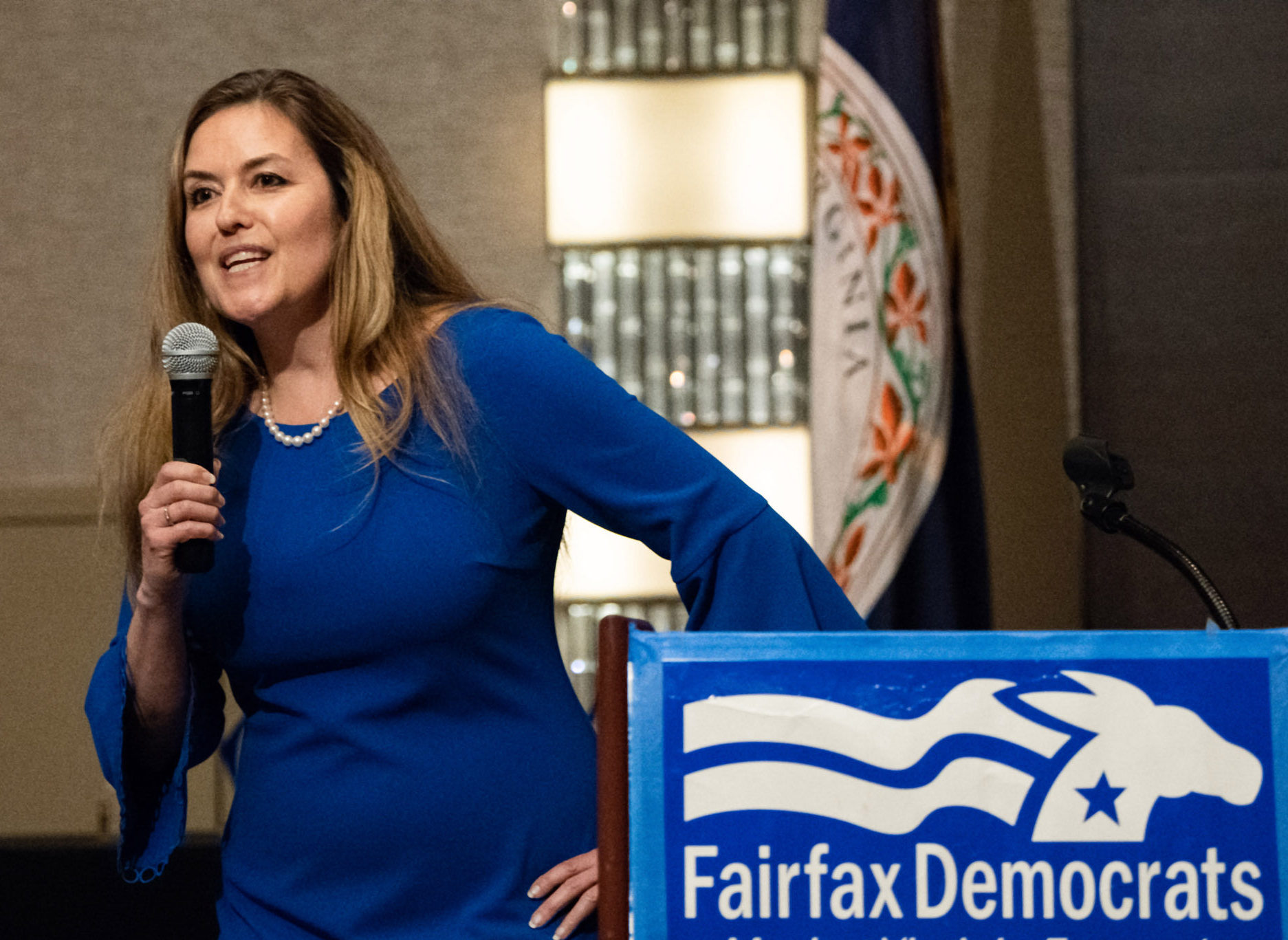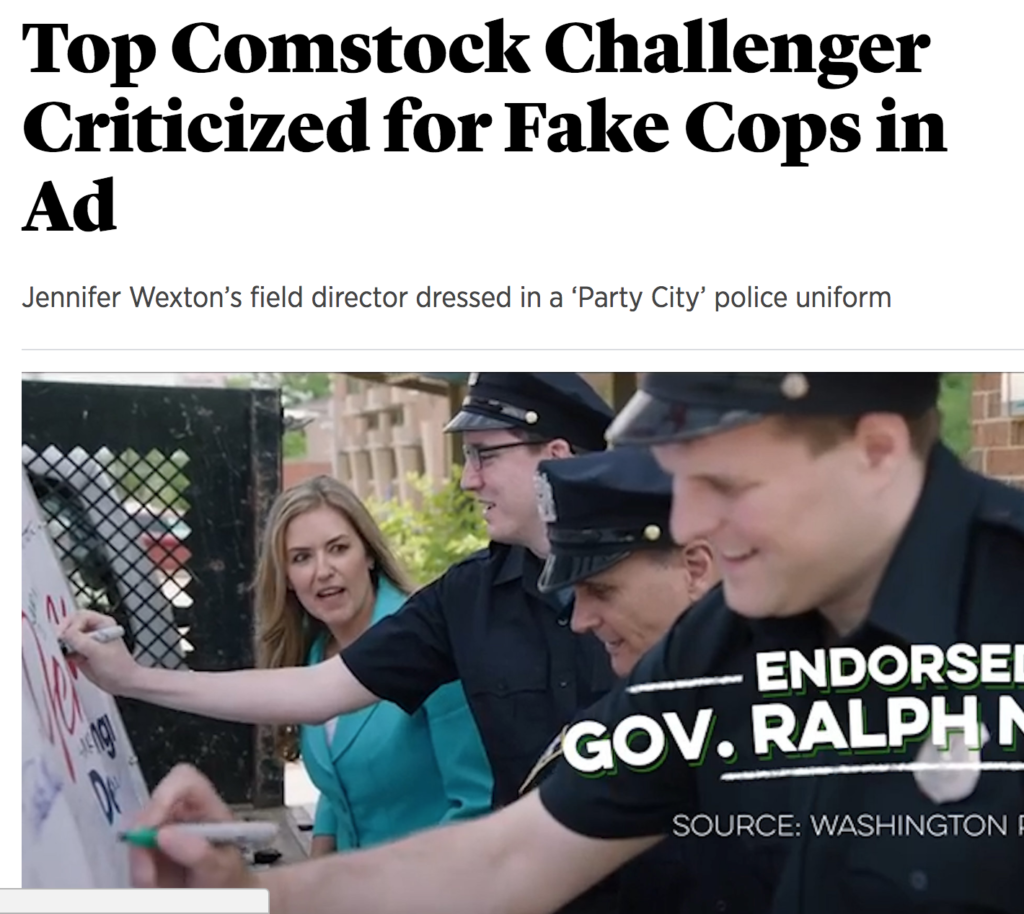Wexton’s campaign is back on its heels saying on background that Wexton now supports these bills that she has called racist. Wexton cannot have it both ways.
Oh what a tangled web we weave…
Democratic opposition candidate (and perennial opportunist) Jennifer Wexton really doesn’t like it when Republicans take on MS-13. Because targeting transnational gangs is supposedly race-baiting. From the Washington Post:
“For Barbara Comstock, the Latino community is nothing more than MS-13,” Wexton said at the event, according to Think Progress, a project of the liberal think tank Center for American Progress. “That’s the legislation she’s patroned. That’s the Republican playbook. That’s what we saw in 2017 races. That’s what we’ve seen with their pandering and fearmongering and race-baiting.”.
Of course, that’s how Wexton characterized the very position she claims to hold now that she is not longer trying to outflank her progressive opposition… and trying to appeal to college-educated Northern Virginia voters who might — just might — take exception with the supposition that targeting MS-13 is even in the slightest degree anti-Hispanic.
So how does Wexton fight back? Nautrally, she takes it to “fact checkers” with the liberal-leaning media, this time with the Associated Press:
Wexton’s campaign objects to the ad portraying her as an opponent of anti-gang legislation even though she has disparaged the legislation as racist. Since Wexton cites the legislation in the context of “fear-mongering and race-baiting” it’s arguable to characterize that as an opposition, though she couldn’t vote against it as a Virginia state senator. Wexton’s campaign told The Associated Press she does not oppose these bills.
Obviously, Wexton cannot have it both ways on this.
Either Wexton consistently supports anti-gang legislation, or is using it it as a hammer against Comstock when convenient. If the latter, no amount of whitewashing from the AP, Politifact, or Snopes is going to help erase the disparity.
If the former? Wexton’s failure to lead against transnational gangs such as MS-13 is a glaring oversight, one that Wexton herself has chosen to politicize for short-term gain, and one where voters in Virginia’s 10th district should judge her very harshly in November.
Sadly, this isn’t the first time where Wexton has manufactured support.
Nor is it the first time where Wexton’s weakness on combating transnational gang violence has been called to task regarding the politicization of what ought to be a common sense and non-partisan concern, as former Delegate Scott Lingamfelter reminds us:
After watching Wexton in the General Assembly, it became apparent to me that she was miffed that Republicans would get credit for addressing a major problem in this law that the Attorney General — and her predecessor in the State Senate — had worked with Republicans to resolve.
That’s why Wexton insisted on opposing House Republicans by insisting on a “poison pill” amendment that would give a break to drug dealers she knew we wouldn’t accept.
Unfortunately, Wexton prevailed over my objections (along with those of Delegates Rob Bell, Todd Gilbert, and Jackson Miller).
Wexton’s soft on crime approach in the General Assembly was widely disparaged by both Republicans and outside observers as rank political opportunism. That Wexton has seen fit to shift her narrative once again isn’t just problematic, it’s moral weakness and rank opportunism where firm resolve ought to exist.
As the RNC’s Garren Shipley reminds us:
Apparently Barbara Comstock’s common-sense efforts to fight dangerous gangs are having a big impact in the 10th District. Now Wexton’s campaign is back on its heels saying on background that Wexton now supports these bills that she has called racist. Wexton cannot have it both ways.
Indeed.








